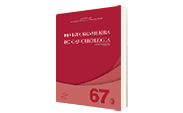Symptom Cluster and the Impact on the Global Health Quality of Patients with Advanced Cancer
DOI:
https://doi.org/10.32635/2176-9745.RBC.2021v67n3.1190Keywords:
Neoplasms, Quality of Life, Sickness Impact Profile, Signs and SymptomsAbstract
Introduction: Patients with cancer can present multiple symptoms that are interrelated, forming the so-called clusters or groups of symptoms. Objective: To evaluate the relationship between a cluster of symptoms and the global quality of life of patients with advanced cancer. Method: Analytical, crosssectional study with 146 patients. Sociodemographic characterization and quality of life assessment instruments were used. For data analysis, the Kolmogorov-Smirnov, Mann-Whitney, and Kruskal-Wallis tests were applied. Data collection was carried out between July 2019 and February 2020 and the European Organization for Research and Treatment of Cancer Core Quality of Life Questionnaire (EORTC QLQ-C30), version 3, was adopted. Results: Spearman’s correlation was positive between the final score of the symptom scale and the final score of the global health assessment (ρ=0.605; p<0.001). In addition, it was observed that the increase of 1 point in the question “Did you need to rest?” was associated with an increase of 5.87 points in the global health quality score (p<0.01), for the question “Did you feel tired?”, 6.14 points (p<0.01) and “Did you have shortness of breath?”, 5.08 points (p<0.01). Conclusion: There is a positive correlation between the cluster of symptoms formed by pain, fatigue, dyspnea, nausea, vomiting, insomnia, lack of appetite, constipation, diarrhea and the overall health quality of patients with cancer.









